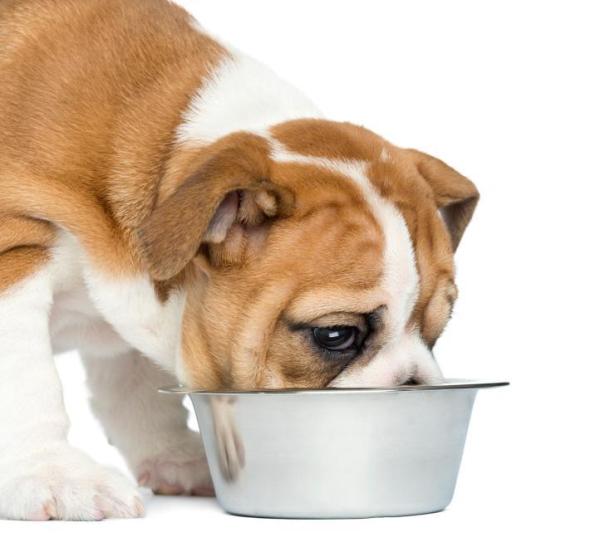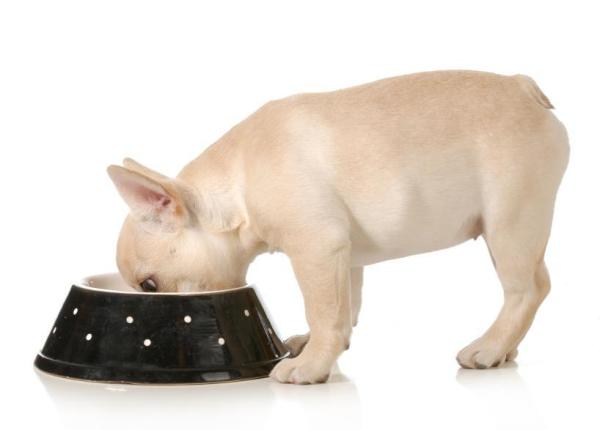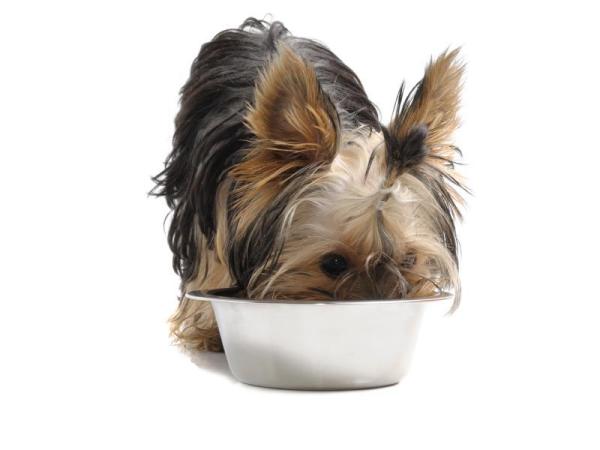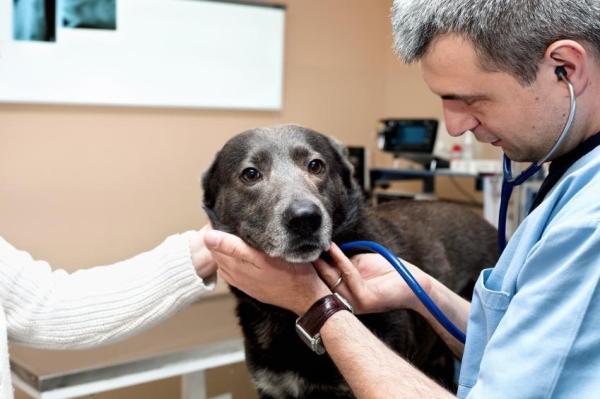
Unlike cats, when you put some food in a dog's bowl it usually disappears within about 3 or 4 minutes. They can really devour whatever you give them in no time at all.
Given how fast they gobble down their food, it is no wonder that they can sometimes choke. Worryingly, this can be very serious and could lead to health issues. As a result of this, we at AnimalWised will provide you with some basic tips on improving digestion and preventing choking in this article.
Read on to learn what you should do if your dog starts choking when it eats.
Ensure the type of food you give your dog is suitable
There are different types of dog food including dry food, wet food and homemade food. All of them vary and have different qualities; so make sure that you provide the one that's right for your pet.
If you start feeding your dog a homemade diet, e.g. raw food such as uncooked meat with bones, be aware that your dog may choke on these bones if it is not accustomed to them.
Tips for improving your dog's digestion:
- Divide food into two servings: one at noon and another at dusk. This will help your dog to digest better and reduces the likelihood of it eating too quickly.
- Adding water or chicken broth (unsalted) to dry food can improve digestion as it prevents the food from forming a compact mass in their throat. This is ideal for dogs with little salivation.
- Wet dog food (sachets/tins) rarely causes choking as it is composed of water (between 50% and 70%). You could feed your dog one portion of wet food a day and another of dry food. Alternatively, you could mix them both to spread between portions.
- Some foods that are included in homemade diets can form a ball. Rice is known to do this, especially when it makes up most of the meal.
Remember not to include foods that are poisonous to dogs, e.g. onion, chocolate or other toxic products that can cause choking or illness. You can also discover forbidden fruits and vegetables for dogs on AnimalWised.
To find out what exactly is causing your dog to choke, we recommend observing them while they eat. Remain at their side whilst they eat and see what makes them choke.
Discover how much and how often you should feed your dog.

The Time at Which You Feed Your Dog is Also Important
After you've made sure you are feeding your dog the correct type of food, you should then consider the time at which they arefed. This can also affect your dog's ability to digest food adequately.
- Avoid feeding your pet immediately after or right before exercise. Not only can this cause choking and stomach ache, it can also lead to torsion of the stomach.
- Do not feed your dog large portions at night. If you feed your dog once a day, it is best that you do so around noon.
- Choose times when your dog is relaxed. If your dog is too excitable before eating, there is a far greater chance that it will choke.
Whilst the type of food you choose to feed your dog is important, the times at which you do so also need to be taken into account. Consider these tips for better digestion.

Consider Possible Diseases
Finally, if your dog is choking even after following our advice at AnimalWised, we recommend seeking the advice of a vet as soon as possible. There are many diseases that can affect a dog's digestion such as gastroenteritis and colitis.
An ultrasound is the most effective method that a vet has to diagnose any type of disease that may develop in your dog's digestive system and even in the heart (which can affect the abdomen also). If you notice your dog's symptoms deteriorating, don't hesitate in taking your pet to see a vet. Go as soon as possible and your little furry friend will be forever grateful to you.

This article is purely informative. AnimalWised does not have the authority to prescribe any veterinary treatment or create a diagnosis. We invite you to take your pet to the veterinarian if they are suffering from any condition or pain.
If you want to read similar articles to My Dog Chokes When Eating, we recommend you visit our Intestinal problems category.